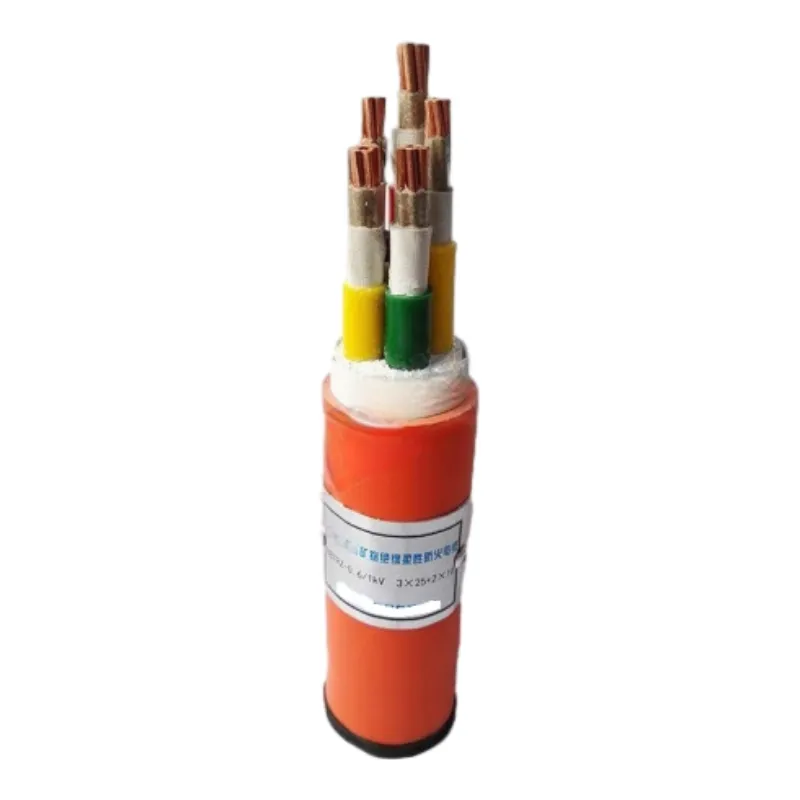Dec . 19, 2024 16:55 Back to list
Understanding the Function and Importance of Hydraulic Control Valves in Fluid Systems
Understanding Hydraulic Control Valves Essential Components in Fluid Power Systems
Hydraulic control valves are critical components in fluid power systems that manage the flow and direction of hydraulic fluid. These valves play an essential role in various applications, from industrial machinery and construction equipment to automotive systems and aerospace technology. Understanding how hydraulic control valves function, their types, and key considerations in their selection and maintenance can enhance the efficiency and reliability of hydraulic systems.
What is a Hydraulic Control Valve?
A hydraulic control valve regulates the flow of hydraulic fluid within a system, directing the fluid to specific cylinders or actuators to generate motion. By controlling pressure and flow rates, these valves ensure that hydraulic systems operate smoothly and efficiently. The fundamental function of a hydraulic control valve is to either start, stop, or redirect the flow of hydraulic oil, enabling precise handling of machinery and tools.
Types of Hydraulic Control Valves
There are several types of hydraulic control valves, each designed to serve specific functions. The most common types include
1. Directional Control Valves These valves control the path of the hydraulic fluid in a system. They are used to switch the flow from one cylinder to another or to reverse the direction of motion. Common examples include spool valves and poppet valves.
2. Pressure Control Valves These valves manage the pressure within the hydraulic system, ensuring that it remains within safe limits. Pressure relief valves and pressure regulating valves fall under this category. They help prevent system failures due to excessive pressure and protect hydraulic components from damage.
3. Flow Control Valves These valves regulate the flow rate of hydraulic fluid, allowing for controlled movement speed of actuators. By adjusting the fluid flow, operators can achieve smooth and precise motion. Popular types include needle valves and flow control cartridge valves.
4. Check Valves These devices allow fluid to flow in one direction and prevent backflow, ensuring that hydraulic fluid stays within the desired circuit. Check valves are vital for maintaining system integrity and preventing damage during unexpected changes in flow direction.
hydraulic control valve

Key Considerations in Selection
When selecting hydraulic control valves, several factors should be taken into account to ensure optimal performance
1. Flow Rate and Pressure Rating It is essential to match the valve's specifications to the hydraulic system's requirements. The valve must be capable of handling the expected flow rates and maximum pressures without leakage or failure.
2. Port Size and Configuration The valve's ports should be compatible with the hydraulic lines in the system. Proper sizing and configuration ensure efficient fluid flow and minimize turbulence and energy loss.
3. Response Time The speed at which a valve responds to changes in control signals can significantly impact system performance. Faster response times are often needed in applications requiring rapid adjustments.
4. Operating Environment Consideration of the environmental conditions where the valve will operate, such as temperature, humidity, and exposure to contaminants, is crucial. Valves must be designed to withstand these conditions without losing integrity or performance.
5. Maintenance Requirements Regular maintenance is essential for the longevity and reliability of hydraulic control valves. Choose valves that are easy to maintain and service, and consider the availability of replacement parts and technical support.
Conclusion
Hydraulic control valves are vital for the efficient operation of hydraulic systems across multiple industries. By understanding their types, functions, and the factors influencing their selection, engineers and operators can ensure that their hydraulic systems perform at optimal levels. Properly managed hydraulic control valves not only contribute to the efficiency of machinery but also enhance safety and reliability in various applications. As technology advances, the design and functionality of hydraulic valves continue to evolve, leading to improved performance and greater adaptability in an ever-changing industrial landscape.
Share
-
Reliable Wafer Type Butterfly Valves for Every IndustryNewsJul.25,2025
-
Reliable Flow Control Begins with the Right Ball Check ValveNewsJul.25,2025
-
Precision Flow Control Starts with Quality ValvesNewsJul.25,2025
-
Industrial Flow Control ReliabilityNewsJul.25,2025
-
Engineered for Efficiency Gate Valves That Power Industrial PerformanceNewsJul.25,2025
-
Empowering Infrastructure Through Quality ManufacturingNewsJul.25,2025